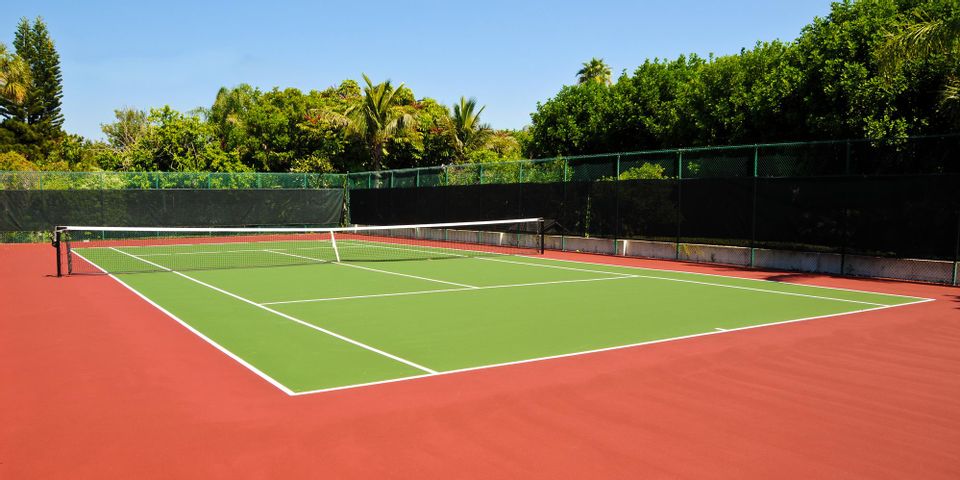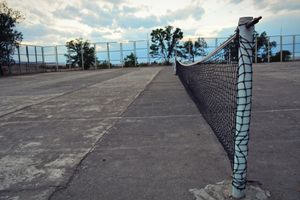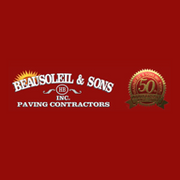Should You Build Your Tennis Court with Asphalt or Concrete?

When constructing a tennis court, one of the most important considerations is what material to choose. Some court surfaces are made of grass or clay, while hard courts are built on either asphalt or concrete. Hard courts are lower-maintenance than soft courts, and offer maximum speed and lower bounce for your game. If you know you want a hard court, you may be wondering what the difference is between picking an asphalt or a concrete. While your game style and budget constraints will ultimately determine what material is best for you, here’s a guide to help you decide.
How to Choose Between Asphalt & Concrete for Tennis Courts
Asphalt vs. Concrete Durability
 Aesthetically speaking, there’s little difference between asphalt and concrete, as courts are typically covered with cushioning or acrylic coating for color. Asphalt tennis courts tend to cost less than concrete upfront. If correctly mixed and installed to ensure proper drainage, asphalt is resilient and versatile, and can be used for other activities like basketball or racquetball. It’s easy to maintain, since it only requires resurfacing at least every five years or so, weekly sweeping, and annual washing. Cracks may need to be repaired as they appear. Concrete tennis courts may set you back more initially. They require less maintenance over their lifespan and are less prone to damage or cracks. They last longer than asphalt, have increased resistance to settling and heaving, and provide a more even playing surface thanks to their rigid structure.
Aesthetically speaking, there’s little difference between asphalt and concrete, as courts are typically covered with cushioning or acrylic coating for color. Asphalt tennis courts tend to cost less than concrete upfront. If correctly mixed and installed to ensure proper drainage, asphalt is resilient and versatile, and can be used for other activities like basketball or racquetball. It’s easy to maintain, since it only requires resurfacing at least every five years or so, weekly sweeping, and annual washing. Cracks may need to be repaired as they appear. Concrete tennis courts may set you back more initially. They require less maintenance over their lifespan and are less prone to damage or cracks. They last longer than asphalt, have increased resistance to settling and heaving, and provide a more even playing surface thanks to their rigid structure.
Asphalt vs. Concrete Installation
Asphalt and concrete must be installed differently. A paving contractor will commence installation after assessing soil conditions, the slope of the installation site, and proper drainage. With asphalt courts, a layer of crushed stone will serve as a base before pouring in mixes in two batches for wearing and binder. After curing for two weeks, resurfacing materials such as colors and markers are applied. Concrete courts are made by installing structural concrete slabs over a base of cables. Slabs are then reinforced with tension cables after installation. Concrete bases are thus often called “post-tension” tennis courts.
Whether you choose asphalt or concrete for your tennis court, always rely on the experts at Beausoleil & Sons Construction, Inc. Based in Cranston, RI, they offer outstanding residential and commercial paving services throughout Connecticut, Rhode Island, and Massachusetts. They’re dedicated to customer service, and will take the time to explain their process, your options, and anticipated costs in advance. Call (401) 632-0203 to get an estimate or visit their website to learn more about why they’re leaders in their industry.
About the Business
Have a question? Ask the experts!
Send your question

